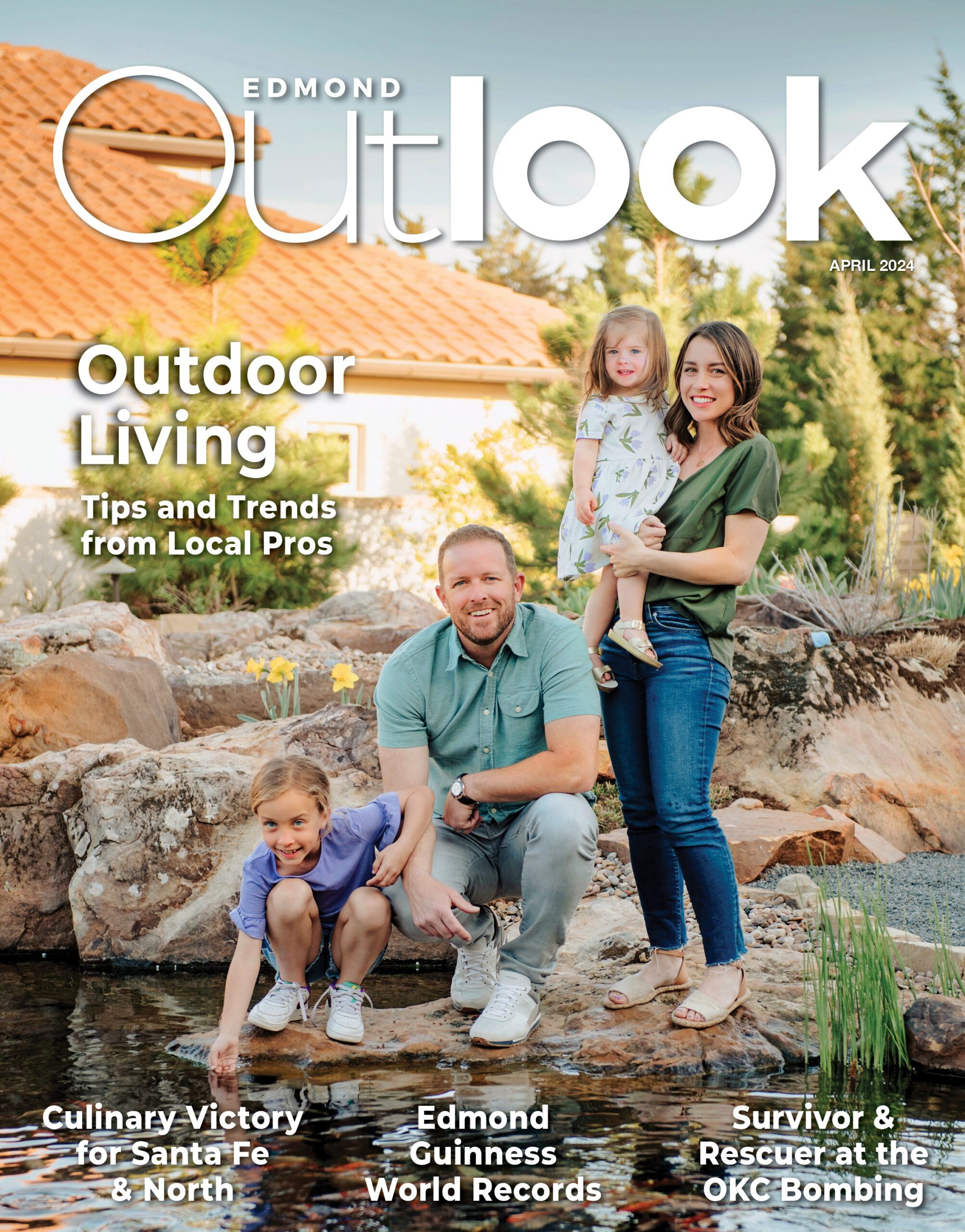Hope For Honduras
Walking streets lined with dilapidated huts and unexpected danger hiding behind the broken-down walls, former Edmond residents Shelly and Ron Jones go about their life’s work; caring for about 800 children each day in the mountains overlooking Tegucigalpa, Honduras.
The two followed God and their hearts to Honduras to find a new life providing desperate refugees with medical care and education. What didn’t follow them was their stuff. To make this life change work, The Joneses jettisoned everything – the comfort of Edmond, the cars, the house and everything in it.
The Joneses exchanged Quail Springs Mall, downtown Edmond and all the attractions of Oklahoma City for dilapidated huts, mud roads, unparalleled poverty – and the opportunity to help those in need.
The Joneses story began long before they decided to give up the comforts of Oklahoma for the harsh living in Honduras. In 1998 Hurricane Mitch, striking the Guatemalan coastline, caused massive damage, virtually erasing every trace of civilization in its path. Hundreds of thousands of homeless refugees moved inland to the town of Tegucigalpa with no hope of ever returning home. The small city swelled from 600,000 to over 1.7 million overnight.
Two more residents – Shelly and Ron – made Tegucigalpa their home after answering a calling from a higher power. After plenty of contemplation and prayer, they decided it was time to give up the steady rhythms of Edmond life and devote their lives to making a difference in Honduras.
They didn’t leave Edmond without doing their homework. They knew the grim numbers that characterized their new home: 90 percent poverty, 76 percent illiteracy, and 80 percent unemployment. Living in Tegucigalpa on a dollar a day is a luxury for its inhabitants.
The Joneses practice their humanitarian effort in what the Guatemalan government calls “invasion areas”. It views the new residents there as nothing more than squatters who never left.
“It’s truly a site to see,” Shelly says, referring to the extreme poverty that ravages the new mountain community. “When we arrived, there was nobody here helping these people. There were no medicines. There was no food. There was nothing.”
But it was in the midst of nothing that the Joneses laid the groundwork for something spectacular. After getting clearance from the local authorities and lots of help from the locals, construction began on the area’s only community center. The building houses a small hospital, as well as a school.
It wasn’t hard to recruit refugees to help improve the community. “They were just so excited about something positive going on, they all wanted to take part,” Shelly says about progress being made in a place that has very little to get excited about.
“The city below carries on like most metropolitan cities do,” Shelly says, “It’s up in the surrounding mountains where true danger lies. People from the city don’t go near the refugee camps. Police have drawn an imaginary line they don’t cross, knowing they are outmanned and outgunned by the gangs who rule and govern what goes on.”
But after getting to know the Joneses and seeing the improvements they spearheaded, authorities granted them permission to continue their efforts. New additions in the mountains around Tegucigalpa include a leather factory
a workshop, work offices, several medical clinics, churches, study halls, schools and a soccer field.
The leather shop buys scrap leather from furniture makers in the United States, and in turn produces handmade purses that are sold in upscale malls in Houston. The proceeds are reinvested into local projects and help keep the area moving forward economically.
“These are people that had nothing, not even beds to sleep on. I feel that they finally have something they can be proud of. We have a lot of work left to do. But the progress is tremendous,” she says.
The area gangs let the couple wander around the mountains freely to do their work. On more than one occasion, members of rival gangs put aside their differences and their guns to help out. In addition to community projects, the area “squatters” have built 124 houses. They feature concrete floors and 2×4 construction, an entirely new concept to many of the local residents who’ve lived their lives in huts with dirt floors and clapboard walls.
The Joneses’ work inspired others to follow in their footsteps. Only 12, Edmond resident Jordan Brown visited Honduras in 2007 on a missionary trip. While helping Hondurans to build houses, Jordan took time out of her busy schedule to look around and get to know the locals.
“I saw situations much different than what I’m used to,” says Brown, “It’s not a fair world. We need to know that not everybody has a good home, shoes or even enough food to eat each day.”
It’s an understatement to say this area of a beautiful country has a long way to go. Shelly explains that while she loves coming back to the United States once a year to shop at stores like Target, there’s very little she misses in the U.S.
“Most of all, I don’t miss the pace. You can’t hurry the people of Honduras. They slow down and make the most of their time. I truly like it. It’s a blessing to be living there.”
This Edmond couple is making a difference. The two make up the only humanitarian organization from any country in the world permanently in Tegucigalpa helping the thousands of children who would otherwise be going to bed sick and hungry, or simply dying due to the extreme lack of aid.
Log onto www.hopeforhonduras.net to help the rebuilding of Honduras.


